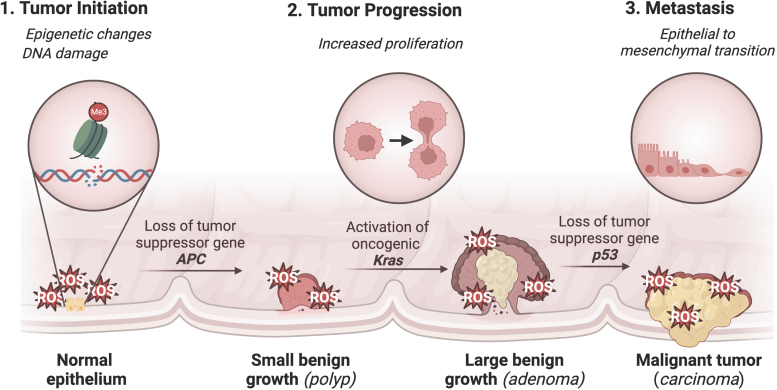FIG. 2.
Role of ROS in CRC tumorigenesis. ROS are essential in CRC tumor initiation, progression, and metastasis. Tumor initiation begins with genetic and epigenetic changes. ROS directly contribute to tumor initiation through oxidative DNA damage and the formation of mutagenic 8-oxodG, which induces guanine to thymine transversion through its ability to bond to both cytosine and adenine (Oka and Nakabeppu, 2011). In addition, ROS help drive aberrant methylation of DNA (Barnicle et al., 2017; Lucafò et al., 2021). Tumor progression involves the selective expansion of cells given a proliferative advantage. It was shown that increased H2O2 generation secondary to upregulation of NOX1 in NIH 3T3 fibroblasts led to the increased expression of cell cycle and growth genes (Arnold et al., 2001). ROS have also been shown to promote proliferation and migration of CRC cells through regulation of cell cycle progression and EMT (Zeng et al., 2021). Lastly, metastasis involves neoplastic growth at a secondary site. ROS help promote induction of EMT essential for metastasis. During EMT, epithelial-like cells lose cell–cell and cell–matrix adhesions and become more mesenchymal-like with increased motility and migratory capability (Bhatia et al., 2020). 8-oxodG, 8-oxo-7-hydro-2′-deoxyguanosine; CRC, colorectal cancer; EMT, epithelial-to-mesenchymal transition; ROS, reactive oxygen species.

